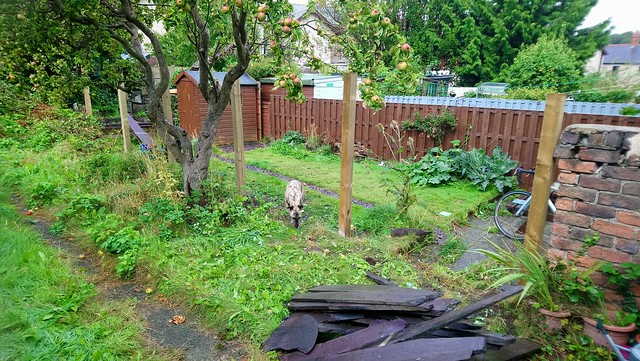Podcast: Play in new window | Download
In today’s Adventure in Etymology we’re looking at the origins of the word ladder.
A ladder [ˈladə/ˈlædɚ] is:
- a frame, usually portable, of wood, metal, or rope, used for ascent and descent, consisting of two side pieces to which are fastened rungs
- a series of stages by which one progresses to a better position
It comes from the Middle English ladder/laddre [ˈladər], from the Old English hlǣder [ˈxlæː.der] (ladder), from the Proto-Germanic *hlaidrijō [ˈxlɑi̯.dri.jɔː] (ladder) from the Proto-Indo-European *ḱley- (to lean, slope, incline) [source]
English words from the same PIE root include: climate, client, clinic, decline, incline and lean [source].
Words in Celtic languages meaning left (hand/side) come from the same PIE root, including: clé in Irish, clì in Scottish Gaelic, cledd in Welsh and kleiz in Breton, which also means north [source].
Video made with Doodly – an easy-to-use animated video creator [affiliate link].
I also write about words, etymology, and other language-related topics, on the Omniglot Blog, and I explore etymological connections between Celtic languages on the Celtiadur.
You can also listen to this podcast on: Apple Podcasts, Amazon Music, Stitcher, TuneIn, Podchaser, PlayerFM or podtail.
If you would like to support this podcast, you can make a donation via PayPal or Patreon, or contribute to Omniglot in other ways.










